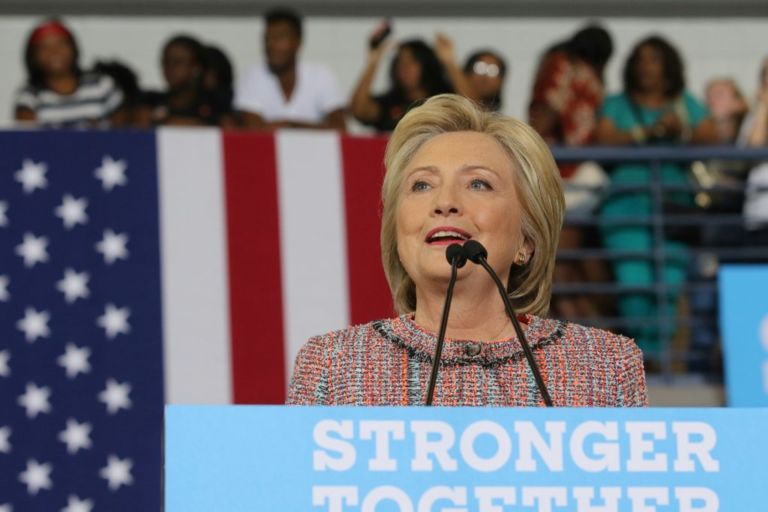Patrick Gleason of Americans for Tax Reform writes in Forbes in praise of North Carolina for, in the words of the article’s title, its Politicians Foster[ing] A Craft-Beer Renaissance By Not Acting Like Politicians. The occasions for Gleason’s piece are the passage of House Bill 829, which removes regulatory impediments and allows for retail sale of growlers, which are large (64 oz.) glass jugs of beer, and the state’s prospects for tax reform.
Noting that North Carolina is becoming a "microbrewing mecca," with "70 breweries, a 33 percent increase from a year ago," Gleason looks forward to the "expansion of commerce" that these changes make possible. He hopes lawmakers in other states and nationally can draw lessons from North Carolina in promoting economic growth through freeing industry, as they "demonstrate that politicians would do better to first consider how they can get government out of the way of employers so that they can expand their businesses, grow the economy, and create jobs."
Let’s just hope that’s the lesson they draw: lighter regulation and less taxation. Unfortunately, some of this microbrewing mecca’s drafts aren’t the quaffable kind, but the kind taken out on public monies. That’s enough to give any lover of suds and freedom bitter beer face.
A lingering taste of Old Cronyism
Two of Gleason’s examples of the growing beer industry here are new breweries being constructed in Asheville by "[t]wo of the most well-established names in the craft beer business, Colorado-based New Belgium and California-based Sierra Nevada." Those two, however, came about from politicians acting like politicians.
The New School, a blog dedicated to craft beer, called them "Beer Welfare Queens" and listed the incentives they received from the state and local governments:
- State of North Carolina: $1M grant to New Belgium
- Buncombe County: $8.5M tax incentives to New Belgium
- City of Asheville: $3.5M tax incentives and infrastructure to New Belgium
- State of North Carolina: $1M grant to Sierra Nevada
- Henderson County: $3.75M tax incentives and infrastructure to Sierra Nevada
(Aside: There’s a bonus politicians-acting-like-politicians photo at the end of this Site Selections magazine piece on North Carolina, showing former Gov. Bev Perdue (D) and House Speaker Thom Tillis (R), among others, lifting glasses of beer to celebrate New Belgium’s announcement in Asheville.)
The New School rightly points out the unfairness of the incentives to existing breweries:
You know who should be really pissed about all that money? The small brewers who built Asheville up into Beer City USA. You’d think those local brewers could have found a use for $18,000,000 if their elected officials had seen it fit to bestow it on them, instead of on some much bigger companies from out of state–companies that will now be competing in area markets with beer made on a much larger economy of scale. To some extent, a rising tide lifts all boats, but a tide designed for a couple of big boats might swamp a bunch of beautiful little handmade vessels.
But it’s not just through incentives where we find politicians acting like politicians with respect to breweries. They are also working with the beer lobby to stifle competition, such as from a homegrown craft brewery in Guilford County, Red Oak.
Red Oak’s Bavarian-style lager isn’t pasteurized nor does it contain preservatives, so it requires special refrigeration throughout the distribution process. Because of that, Red Oak owner Bill Sherrill believes he must self-distribute. The state arbitrarily limits self-distribution to breweries that produce fewer than 25,000 barrels per year. Bills to raise that cap have been introduced in the previous two sessions of the General Assembly, but they were successfully opposed by the N.C. Beer & Wine Wholesalers Association.
That lobby was also successful in squelching a potentially greater threat to their industry: privatizing the state’s outdated ABC System. Privatizing the state’s monopoly on liquor sales and warehousing would definitely have constituted politicians expanding commerce by first getting out of the way. It would have been an expansion of freedom and a deregulation to toast. But it would also have caused beer and wine distributors to worry about an increase in competition.
The lobby is also successful at parties, which policymakers and media love — as ably demonstrated by The News & Observer’s John Frank:
The soiree hosted by the N.C. Beer and Wine Wholesalers Association draws lawmakers, lobbyists, state officials and plenty of staffers to a historic house near the governor’s mansion for barbecue and beer. Of the many receptions throughout the legislative session, the growler party is one of the most popular.
"We like to think it’s the social event of the year on the legislative calendar," said Tim Kent, the association’s executive director and lobbyist.
(For me, it’s a can’t miss — combining my "day job" covering politics for the newspaper and my "night job" writing about craft beer.)
When legislators and media look forward to a lobby’s "party of the year," they might be loath to cross it over political issues the lobby finds important. We would be left then with politicians acting like politicians, with the media cooing along, inclined to overlook the greater economic returns that could be realized through lighter regulation.
Click here for the Rights & Regulation Update archive.


